Quick Highlights:
- Our #1 ranked school a master’s in psychology is Harvard University, followed by William & Mary.
- Programs often blend online and on-campus elements, catering to diverse student needs.
- Practical experience and research involvement are significant components of a master’s in psychology.
While the word “psychology” has a specific meaning — the science of mind and behavior — its reach is too vast to summarize easily. Working in psychology could mean any number of careers in any number of places:
- Researcher at a university
- Counselor at a school
- Expert in the court system
- Family Therapist
- Human Resources Manager
The list goes on and on.
And that’s a good thing because having more job possibilities means you can find the best career for you. The possibilities grow more numerous with an advanced degree, the kind you’d receive from one of the 10 best psychology master’s degree programs.
Our editors first reviewed the Best Psychology Master’s Programs article in December 2019. This ranking was last updated in December 2023.
We do the research, so you don’t have to!
That’s right, we get the hard work out of the way. We know that you have educational goals that you’re itching to pursue, but you may not know where to start. We’ve crafted a unique and proven ranking methodology that sets us apart. Our ranking score is based on the following three aspects:
- 40% potential salary after graduation
- 30% individual program accreditation
- 30% overall affordability
Want to learn more about how we gather that information? Please feel free to visit our dedicated methodology page for a step-by-step breakdown. We’re an open book!
If you’re interested in psychology, read on for our list of the 10 Best Master’s Degrees in Psychology.
#HarvardUniversity #WilliamandMary #KansasStateUniversity #UniversityofLouisianaLafayette #UniversityofNorthCarolinaCharlotte #NationalLouisUniversity #OldDominionUniversity #NewYorkUniversity #AmericanUniversity #GeorgeMasonUniversity
Related (Campus):
- Best Behavioral Psychology Master’s Programs
- Best Industrial Organizational Psychology Master’s Programs
- Best Forensic Psychology Master’s Programs
Related (Online):
- Best Master’s in Behavioral Science Online
- Best Master’s in Child Psychology Online
- Best Online Master’s in Educational Psychology
- Top Industrial-Organizational Psychology Graduate Programs Online
Disclaimer: Tuition rates are estimates and subject to change. Please visit your selected school’s website for detailed information regarding tuition which is routinely based on your location, semester, financial status, the program you select, and other determining factors.
Harvard University

One of those “needs no introduction” schools, Harvard has been around since 1636 and has long been established as one of the finest universities in the world. U.S. News and World Report ranks it No. 2 in National Universities and No. 3 for graduate studies in psychology.
A hybrid of online and on-campus study, Harvard’s Master’s in Psychology program is surprisingly approachable given the university’s stature.
You don’t even have to apply (at first). Here’s what you do: just register and take three graduate-level courses in:
- Statistics
- Psychology
- Introduction to Graduate Studies
- Scholarly Writing in the Social Sciences
Finish them all with a B or better and a cumulative 3.0, and then apply to one of the top psychology master’s programs in the U.S.
Harvard’s Master of Liberal Arts in Psychology degree is built around 12 courses (48 credits), though the focus can be customized through elective choices. You choose either a thesis or capstone track. Many courses can be taken online, though the school requires students to take at least four of them (12 credits) on campus in Cambridge, MA. The course catalog offers an array of options, from super specific (Dopamine) to more general (Introduction to Psychopharmacology).
William & Mary
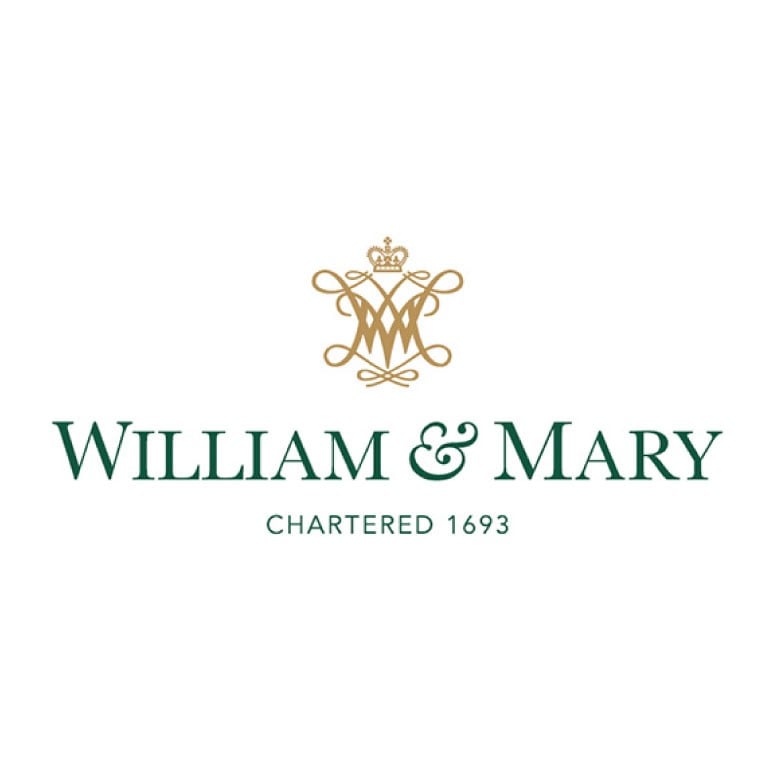
If nothing else, William & Mary in Williamsburg, VA, is frank about its MS in psychology. This psychology graduate program is intended for students interested in research careers, or maybe in working as a school psychologist or psychological aid at a hospital or clinic. “You should be careful when choosing a Master’s program,” it says.
Sold on it yet? If so, come prepared to work: “This is a two-year, full-time research-oriented, residential program,” explains its website. The eight or nine students accepted by the school each year are “integrally involved in research,” working along with faculty and undergraduate students to conduct research and write it up for professional journals.
This best psychology master’s program requires a minimum of 37 hours of coursework, along with a first-year research project and a second-year thesis that students need to present and defend. The course load includes a year-long statistics sequence, a graduate course in research methods, and a year-long professional development sequence, where students read, discuss, and analyze other research.
Kansas State University – Manhattan, Kansas
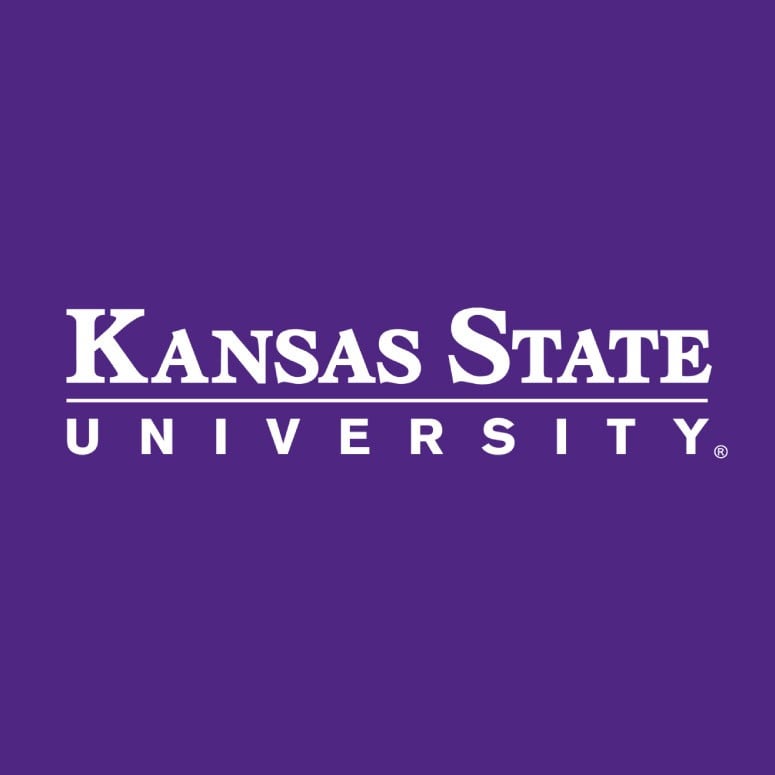
Where some schools offer a general Master’s in Psychology that provides a broad educational foundation for a career or further academic pursuits, K State gets extra specific.
Its Master of Science in Psychology has an emphasis on Industrial and Organizational Psychology (abbreviated MIOP), with a curriculum that focuses on “the application of concepts and behavioral science methodologies to problems facing the human resource professional today.” Here you were, joking that colleges don’t give degrees in HR!
MIOP is a hybrid program structured around the following parts:
- Online coursework
- Guided research
- A practicum
- Courses on campus for two weeks each summer
(Those include introductory courses in industrial/organizational psychology and research methods, along with ethics and legal issues.) The four online courses follow a two-year rotation and cover such fundamentals as:
- Personnel Selection
- Performance Appraisal
- Organizational Psychology
- Personnel Training
Students take the practicum (Research in I/O Psychology) each fall and spring during this master’s program.
Speaking of, it takes about two and a half years to accumulate the 38 credits needed to graduate.
University of Louisiana at Lafayette

Richard Simmons. Frank Ocean. Too many athletes and politicians to name. The guy who played Little Ricky on I Love Lucy. They’ve all matriculated at the University of Louisiana in Lafayette, the center of Creole and Cajun culture in the region.
Those cultures probably have unique psychological profiles, the kind of things you could learn at the University of Louisiana. Like a lot of other graduate-level psychology programs, ULL’s is primarily geared toward people intending to pursue their doctorates. This top psychology master’s program is designed flexibly to reflect the academic and career aspirations of graduate students.
The psychology degree requires 38 graduate credit hours, 20 of which come from core courses that examine ethics and professional standards in psychology, research methods and design, and more. Thesis work counts for six credits of that 20. In addition, you will complete nine credits of “extended core courses,” generally high-level classes like Advanced Cognitive Psychology. You will wrap it up with nine elective credits that can be tailored to your goals, like Introduction to Psychotherapy or Cognitive Behavioral Therapy.
To get into the psychology program, you will need to have completed 18 hours of undergraduate coursework in psychology, along with some experience in statistics and research methods. ULL also recommends that students have research topics to pursue before they begin the program.
University of North Carolina at Charlotte
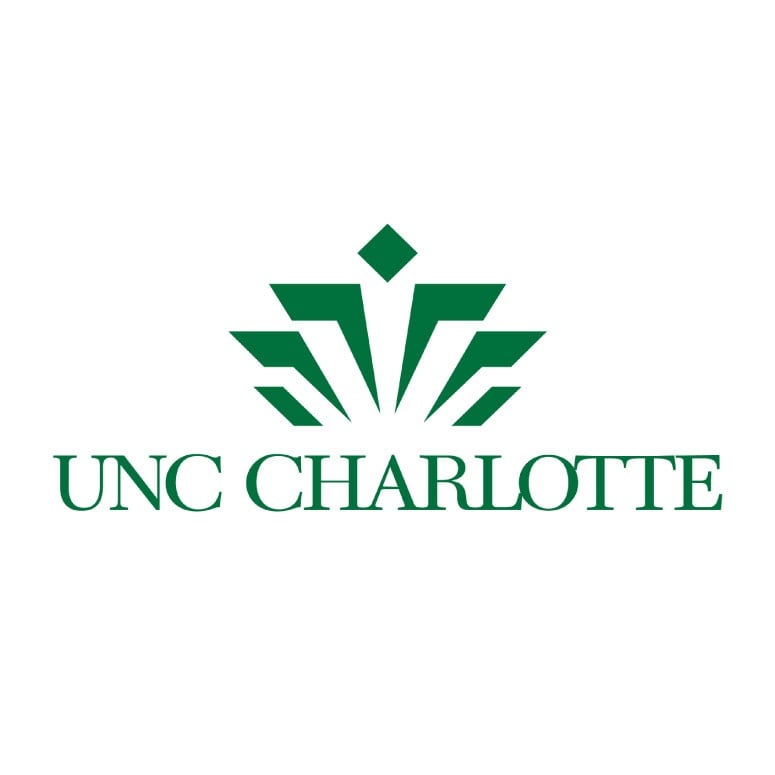
Located in the biggest city in North Carolina and the country’s 16th most populous municipal area, UNC-Charlotte has a lot going for it. And not just price. UNC Charlotte keeps its psychology MA program small, describing the application process as “very competitive” – so that you will receive the maximum amount of personalized attention from faculty.
UNC Charlotte’s MA in psychology is also versatile, with two optional areas of emphasis: community psychology and cognition. (A third, health psychology, is only available to Ph.D. students.)
The newer of the two, the community psychology program debuted in 2016. While the university pointedly notes it does not provide clinical training, the specialization allows students to develop applied community skills without having to complete a doctorate. The cognition track focuses on understanding – wait for it – human cognitive processes and the complex mental tasks they complete.
With or without a concentration area, the Master’s in Psychology requires 30 credit hours of graduate coursework, with 18 coming from core classes in three modules:
- Methodology (six credit hours)
- Ethics (three credit hours)
- Specialty area courses (six credit hours)
The classes in each are divided by emphasis area. Thesis work accounts for another one to three credits, and 12 hours of electives – selected from a long list of options – round out the remaining credits.
National Louis University
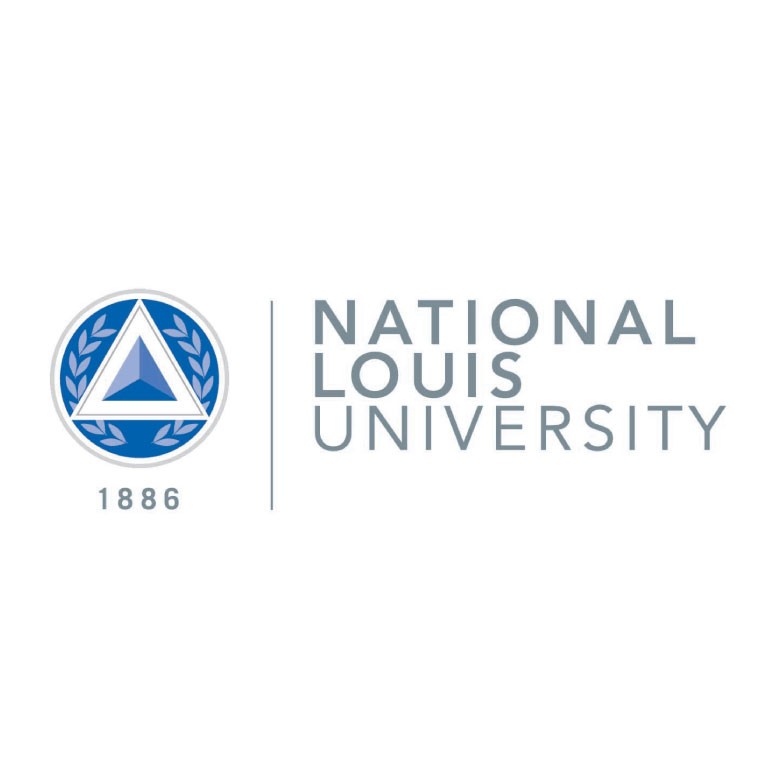
National Louis University started in Chicago in 1886 with a fairly radical plan: to train women to be kindergarten teachers. Founder Elizabeth Harrison knew the importance of teaching kids from an early age, and she thought teaching deserved a degree. The university expanded with the times, adding advanced degrees in other areas.
Psychology joined the fray in 1982. Unlike other programs that treat a master’s in psychology as a stepping stone on the way to a Ph.D., NLU believes the psychology degree has a number of applications in business, teaching, and therapy. Students in its program choose one of four concentrations:
- General Psychology
- Community Psychology
- Psychological Assessment
- Teaching of Psychology
The psychology master’s program requires 36 credit hours for completion and includes either a comprehensive exam or a thesis. Each concentration has specific courses, but all include:
- Six hours of “gateway courses”
- 15 hours of core courses
- Three hours of electives
- Three hours of a capstone (either the thesis or exam)
The concentration courses add another nine credit hours.
NLU’s program is offered both online and on-campus in Chicago.
Old Dominion University
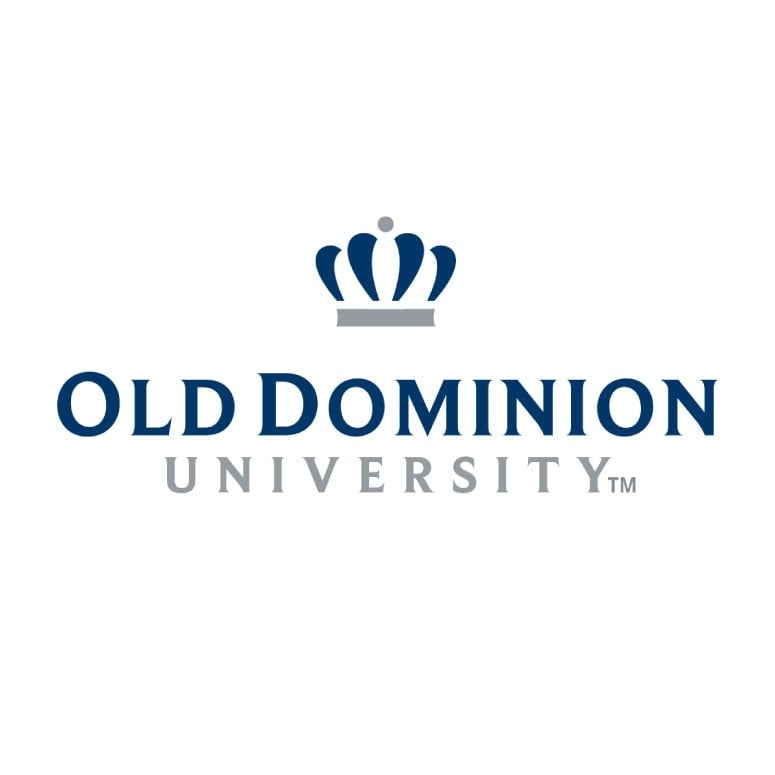
Old Dominion University has a waterfront campus in Norfolk, VA, not far from the world’s largest naval base, Norfolk Naval Station, and the North American headquarters for NATO. Unsurprisingly 25% of students are affiliated with the military in some way.
The school also attracts more than 4,800 grad students. ODU’s MS in psychology provides “a strong background in research methods and general psychology,” according to the school. This psychology degree intends to accommodate a variety of professional interests. A big part of its curriculum is working closely with faculty on research, beginning with a first-year research project. You will also work with a faculty advisor on their thesis later.
This top psychology master’s program requires a minimum of 36 hours of coursework, beginning with 11 hours of core classes:
- Research Methods in Psychology
- Analysis of Variance and Experimental Design
- Regressional and Correlational Design
Then there are six hours from a list of psychology courses and another 13 hours come from electives, which can focus on a concentration:
- Applied Cognitive Psychology
- Clinical Psychology
- Industrial/Organizational Psychology
- Quantitative and Assessment
Research and the thesis project account for another six hours, and presto, master’s of science in psychology.
Oh wait, did you select a concentration? Then you also need to do a research project or practicum related to that.
New York University
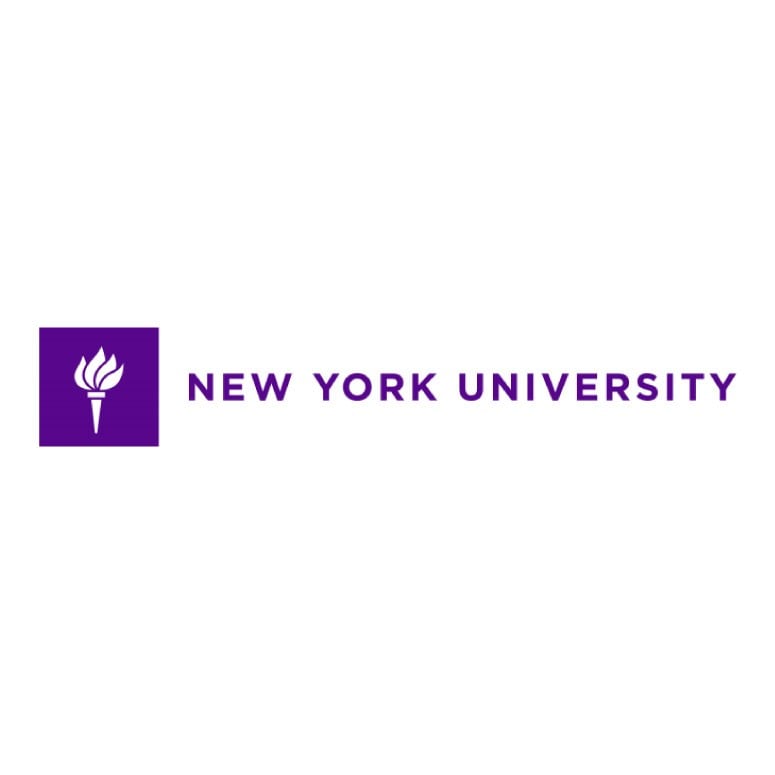
Because NYU has long had a reputation as one of the best universities in the country – U.S. News and World Report ranks it #28 for National Universities – it’s hard to go wrong with a major there. That naturally includes its MA in psychology, a program designed by the university to be flexible, both in schedule (evening classes) and focus (tailored by students).
The Master’s in Psychology program is built on 12 courses along with a thesis or comprehensive exam. The 36 credits are broken down into:
- Two foundation courses: Statistics and Research Methods
- Three courses from two modules of Core Courses
- Seven electives (three of which must come from the psych department)
As mentioned, classes are offered in the evenings to accommodate working students, and class sizes are small – an average of 15. As an NYU grad student, you will also get hands-on experience working in research labs, either at NYU or elsewhere.
American University
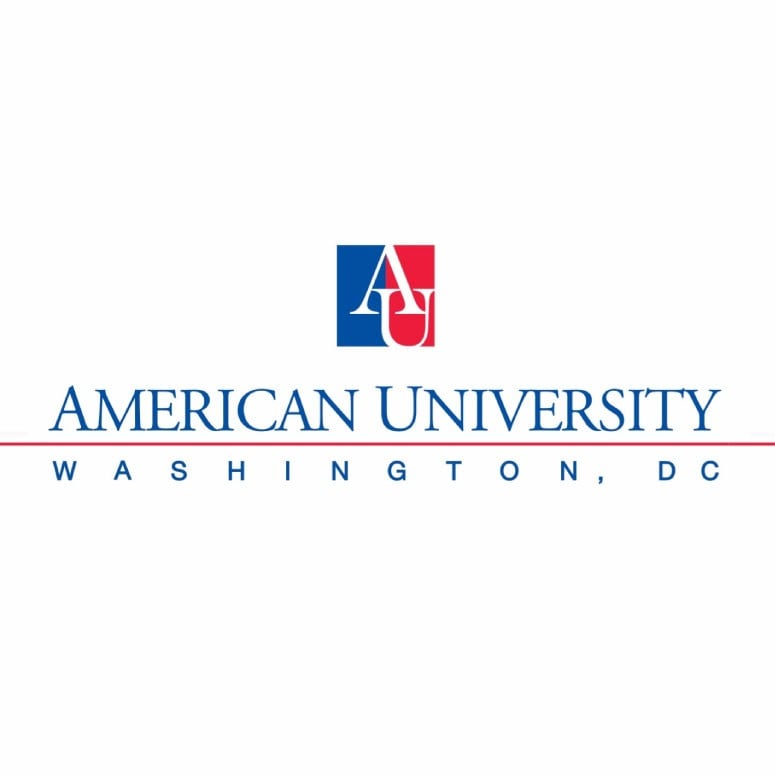
American University sits in Washington, D.C., the center of American government and politics. So if you’re going to study psychology, why not head to the place where psychological warfare rages? American University is among the best grad schools for psychology!
American’s program is designed to prepare students for doctorate work or a career in research, through a combination of coursework and lab work. P.S. The school describes this program as “rigorous” (with bold letters).
The 33-credit psychology program offers three specializations:
- General Psychology
- Personality/Social Psychology
- Experimental/Biological Psychology
A thesis is optional for general psych (although with a “substantial research project” instead), but required for the latter two.
The courses vary by specialization, of course, but the tracks aren’t completely isolated from each other. You will sample courses from all tracks, choosing from a long list of options.
For example, the Personality/Social Psychology specialization features:
- 12 hours of courses from that area
- Six hours from experimental/biological
- Three hours from psychological research
- Six hours for thesis work
- Three hours of statistics
- Three hours of electives
American’s graduate program allows for a well-rounded study of psychology for maximum usefulness in a career or further study.
George Mason University
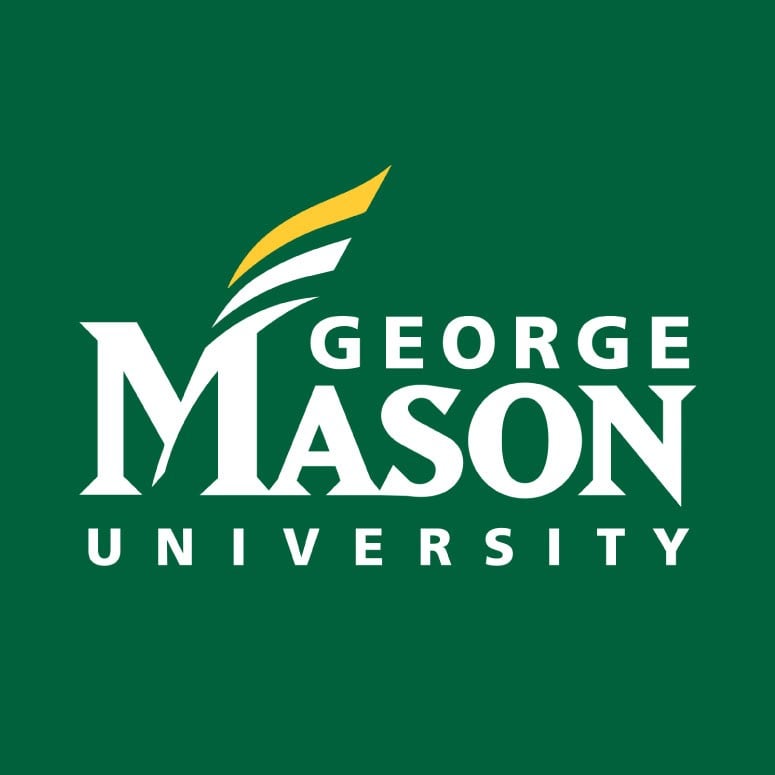
Located in Fairfax, VA, just 22 miles west of Washington, D.C., George Mason University is close enough to the nation’s capital to enjoy the benefits of proximity. However, it’s far enough so that motorcades aren’t constantly messing with traffic. Think of it as almost like a more affordable American University.
In fact, the school’s proximity to D.C. has influenced its master’s curriculum, which emphasizes “contemporary practical and policy implications of research in psychology,” says GMU’s website. That helps distinguish its MA in psychology program because it focuses “on basic research and the application of research to solve practical problems.”
Like a lot of psychology master’s programs on this list, GMU offers concentrations:
- Applied Developmental Psychology
- Cognitive and Behavioral Neuroscience
- Human Factors/Applied Cognition
- Industrial/Organizational Psychology
To graduate, you need 30-32 credits, depending on your specialization. A thesis or practicum is required for Applied Developmental Psychology and Cognitive and Behavioral Neuroscience, though they’re optional for Human Factors/Applied Cognition.
Each track has a slew of specialized coursework, with applied developmental psychology drawing something from each specialization. Most also include modules on quantitative methods (statistics, variance, etc.) and a professional seminar. Electives generally stay within psychology but can come from other departments with an instructor’s permission.
Frequently Asked Questions
Remember that part about all the different jobs out there? That makes it difficult to offer a baseline figure, but count on the Bureau of Labor Statistics to take a whack at it.
Using “psychologist” as a general term, BLS says they earn a median salary of $85,330.
For more specific data, the BLS breaks them down into the following categories:
Industrial-Organizational Psychologist ($139,280 average salary)
Clinical, Counseling, and School Psychologist ($90,130 average salary)
Psychologists, all other ($106,420 average salary)
On the macro level, the bureau estimates there are 106,500 psychologist jobs in the U.S., and it expects that number to grow by 6% by 2032 — faster than the 5% national average job growth — adding another 12,800 jobs.
A master’s degree can open doors to more specialized roles in psychology, research, or applied settings. Consider your long-term objectives, the specific opportunities the degree can provide, and whether it aligns with your passion for the field before pursuing a master’s in psychology.
Earning a master’s in psychology can be challenging but rewarding. The coursework often involves in-depth study of psychological theories, research methods, and practical applications. The difficulty may vary based on individual learning styles and dedication, but a strong work ethic and genuine interest in the subject can contribute to successful completion of the program.
Choosing between an MS or MA in psychology depends on your career goals. An MS tends to be more research-focused, suitable for those interested in experimental psychology or pursuing a Ph.D. An MA often has a broader scope, incorporating both research and applied aspects, making it suitable for careers in counseling, therapy, or other applied psychology fields. Consider your preferences, professional aspirations, and the specific program offerings to determine which degree aligns better with your goals.
The earning potential in psychology can vary based on specialization and career path. Clinical psychologists, particularly those with a doctorate, often have higher earning potential compared to other specializations. However, it’s crucial to choose a specialization that aligns with your interests and passion rather than solely focusing on income potential for a fulfilling and successful career in psychology.
After earning a master’s in psychology, you may pursue a doctoral degree, such as a Ph.D. or Psy.D. These advanced degrees offer specialization and research opportunities. They prepare you for roles in academia, clinical practice, or advanced research in psychology. The choice between Ph.D. and Psy.D. depends on career goals, with Ph.D. programs typically emphasizing research and academia, while Psy.D. programs focus more on clinical practice.
